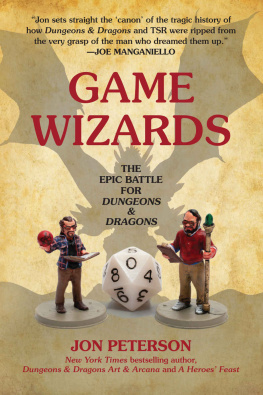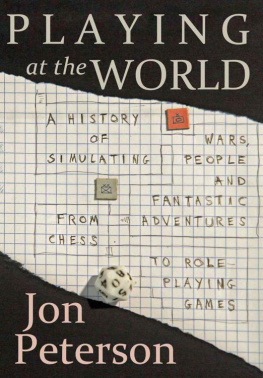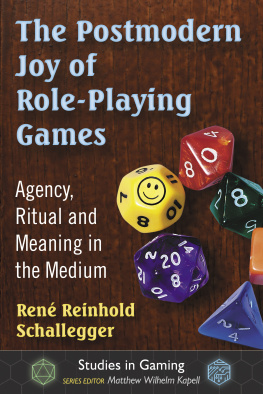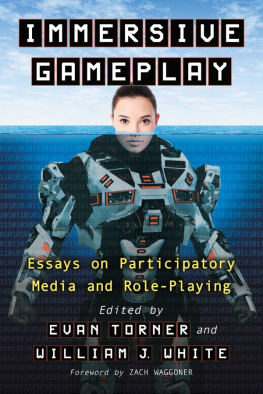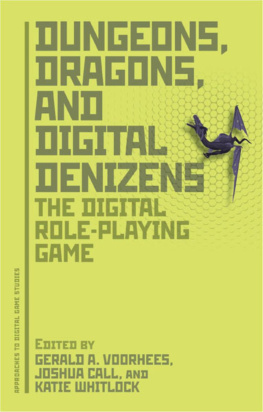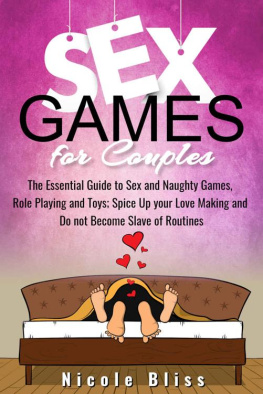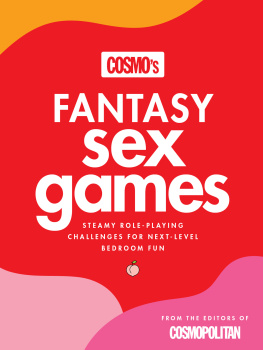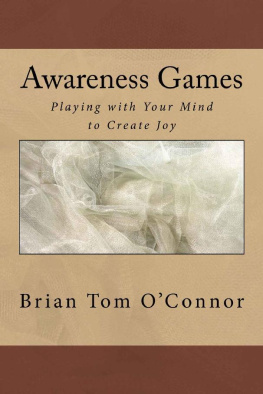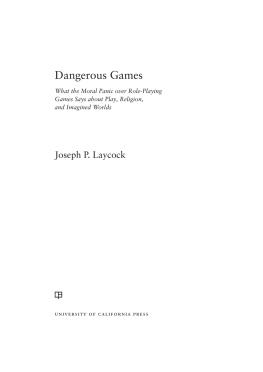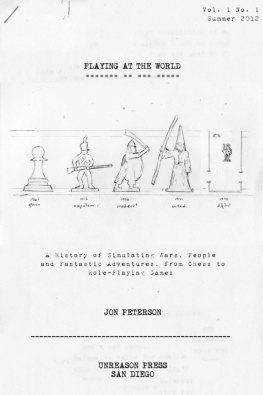Jon Peterson - The Elusive Shift: How Role-Playing Games Forged Their Identity
Here you can read online Jon Peterson - The Elusive Shift: How Role-Playing Games Forged Their Identity full text of the book (entire story) in english for free. Download pdf and epub, get meaning, cover and reviews about this ebook. year: 2020, publisher: MIT Press, genre: Romance novel. Description of the work, (preface) as well as reviews are available. Best literature library LitArk.com created for fans of good reading and offers a wide selection of genres:
Romance novel
Science fiction
Adventure
Detective
Science
History
Home and family
Prose
Art
Politics
Computer
Non-fiction
Religion
Business
Children
Humor
Choose a favorite category and find really read worthwhile books. Enjoy immersion in the world of imagination, feel the emotions of the characters or learn something new for yourself, make an fascinating discovery.

- Book:The Elusive Shift: How Role-Playing Games Forged Their Identity
- Author:
- Publisher:MIT Press
- Genre:
- Year:2020
- Rating:4 / 5
- Favourites:Add to favourites
- Your mark:
- 80
- 1
- 2
- 3
- 4
- 5
The Elusive Shift: How Role-Playing Games Forged Their Identity: summary, description and annotation
We offer to read an annotation, description, summary or preface (depends on what the author of the book "The Elusive Shift: How Role-Playing Games Forged Their Identity" wrote himself). If you haven't found the necessary information about the book — write in the comments, we will try to find it.
The Elusive Shift: How Role-Playing Games Forged Their Identity — read online for free the complete book (whole text) full work
Below is the text of the book, divided by pages. System saving the place of the last page read, allows you to conveniently read the book "The Elusive Shift: How Role-Playing Games Forged Their Identity" online for free, without having to search again every time where you left off. Put a bookmark, and you can go to the page where you finished reading at any time.
Font size:
Interval:
Bookmark:
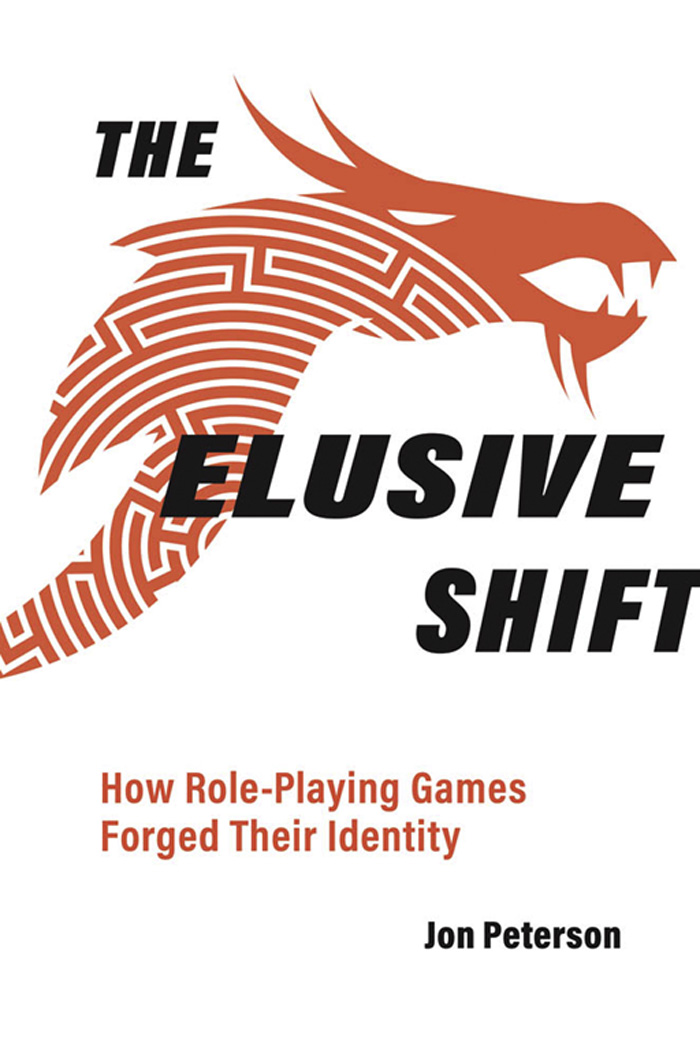
Game Histories
edited by Henry Lowood and Raiford Guins
Debugging Game History: A Critical Lexicon, edited by Henry Lowood and Raiford Guins, 2016
Zones of Control: Perspectives on Wargaming, edited by Pat Harrigan and Matthew Kirschenbaum, 2016
Gaming the Iron Curtain: How Teenagers and Amateurs in Communist Czechoslovakia Claimed the Medium of Computer Games, Jaroslav velch, 2018
The Elusive Shift: How Role-Playing Games Forged Their Identity, Jon Peterson, 2020
Jon Peterson
The MIT Press
Cambridge, Massachusetts
London, England
2020 Massachusetts Institute of Technology
All rights reserved. No part of this book may be reproduced in any form by any electronic or mechanical means (including photocopying, recording, or information storage and retrieval) without permission in writing from the publisher.
This book was set in Adobe Garamond Pro by New Best-set Typesetters Ltd.
Library of Congress Cataloging-in-Publication Data
Names: Peterson, Jon, author.
Title: The elusive shift : how role-playing games forged their identity / Jon Peterson.
Description: Cambridge, Massachusetts : The MIT Press, 2020. | Series: Game histories | Includes bibliographical references and index.
Identifiers: LCCN 2020002981 | ISBN 9780262044646 (hardcover)
Subjects: LCSH: Fantasy gamesHistory. | Dungeons and Dragons (Game)History.
Classification: LCC GV1469.6 .P48 2020 | DDC 793.93dc23
LC record available at https://lccn.loc.gov/2020002981
10 9 8 7 6 5 4 3 2 1
d_r0
What might histories of games tell us not only about the games themselves but also about the people who play and design them? We think that the most interesting answers to this question will have two characteristics. First, the authors of game histories who tell us the most about games will ask big questions. For example, how do game play and design change? In what ways is such change inflected by societal, cultural, and other factors? How do games change when they move from one cultural or historical context to another? These kinds of questions forge connections to other areas of game studies, as well as to history, cultural studies, and technology studies.
The second characteristic we seek in game-changing histories is a wide-ranging mix of qualities partially described by terms such as diversity, inclusiveness, and irony. Histories with these qualities deliver interplay of intentions, users, technologies, materials, places, and markets. Asking big questions and answering them in creative and astute ways strikes us as the best way to reach the goal of not an isolated, general history of games but rather of a body of game histories that will connect game studies to scholarship in a wide array of fields. The first step, of course, is producing those histories.
Game Histories is a series of books that we hope will provide a homeor maybe a launch padfor the growing international research community whose interest in game history rightly exceeds the celebratory and descriptive. In a line, the aim of the series is to help actualize critical historical study of games. Books in this series will exhibit acute attention to historiography and historical methodologies, while the series as a whole will encompass the wide-ranging subject matter we consider crucial for the relevance of historical game studies. We envisage an active series with output that will reshape how electronic and other kinds of games are understood, taught, and researched, as well as broaden the appeal of games for the allied fields such as history of computing, history of science and technology, design history, design culture, material culture studies, cultural and social history, media history, new media studies, and science and technology studies.
The Game Histories series will welcome but not be limited to contributions in the following areas:
- Multidisciplinary methodological and theoretical approaches to the historical study of games
- Social and cultural histories of play, people, places, and institutions of gaming
- Epochal and contextual studies of significant periods influential to and formative of games and game history
- Historical biography of key actors instrumental in game design, development, technology, and industry
- Games and legal history
- Global political economy and the games industry (including indie games)
- Histories of technologies pertinent to the study of games
- Histories of the intersections of games and other media, including such topics as game art, games and cinema, and games and literature
- Game preservation, exhibition, and documentation, including the place of museums, libraries, and collectors in preparing game history
- Material histories of game artifacts and ephemera
Henry Lowood, Stanford University
Raiford Guins, Indiana University Bloomington
On the evening of October 30, 2013, I had the pleasure to make Jonathan Tweets acquaintance at Peter Adkisons place in Seattle. As we hunkered down over a board game, Jonathan cunningly distracted me with a series of historical questions, one of which became lodged in my mind: Which game system first attempted to simulate the structure of a story rather than the physics of a world? Some initial research into how the gaming community of the 1970s positioned that distinction opened up a series of related inquiries. Our ensuing conversation spilled over into telephone calls, emails, coffee shops, and Gen Con bars until in July 2015 I floated, Do you think theres something that needs to be written about all of this? So Jonathan served as the initial impetus for the present volume and became the first critical reader of early drafts, which centered on the chapter now called The Role of the Referee. As punishment, he does appear in this narrative, but out of gratitude it is only at the very end.
Around the same time, the Role-Playing Game Studies anthology settled on a publisher. As Evan Torner developed the section RPG Theorizing, I supplied him with some few primary sources and eventually with a draft of the present work. In the course of working on the anthology, I identified a few areas where historical light might be shed on the development of role playing in theory and design alike. Most of the Toward a Philosophy chapter followed from that research. Evan also helped to introduce a bit more academic rigor into my bibliography and citations.
Discussion about this growing project also slotted readily into several ongoing dialogues I was having, such as my discussion with Luke Crane about the features that distinguish recent role-playing game designs from their old school forebears in the 1970s. Luke was even kind enough to tap the brain trust of the Burning Wheel Headquarters to assemble a list of such key features. It was thanks to Lukes influence that the chapter here called How to Play came into being. Victor Raymond, who reviewed early drafts, provided valuable insight into the fan experience of the 1970s and the epidemiological spread of role-playing games beyond the Midwest. Several threads of online-forum discussion about the origins of role playing, especially in the OD&D 74 forum, also helped core concepts here to gel.
I became connected to Henry Lowood as a co-contributor to the Zones of Control anthology, and in the course of a lunch at Stanford we discussed whether the current work might be a fit for the MIT Press series on game history. Thanks to the support provided by Henry and his series coeditor Raiford Guins, the idea received a favorable hearing. I am indebted to them as well as to Noah Springer, Elizabeth Agresta, Marge Encomienda, Mary Reilly, and Jim Mitchell at MIT Press for their advocacy in bringing this book to fruition and for making sure it received a much-needed review to whip it into shape.
Next pageFont size:
Interval:
Bookmark:
Similar books «The Elusive Shift: How Role-Playing Games Forged Their Identity»
Look at similar books to The Elusive Shift: How Role-Playing Games Forged Their Identity. We have selected literature similar in name and meaning in the hope of providing readers with more options to find new, interesting, not yet read works.
Discussion, reviews of the book The Elusive Shift: How Role-Playing Games Forged Their Identity and just readers' own opinions. Leave your comments, write what you think about the work, its meaning or the main characters. Specify what exactly you liked and what you didn't like, and why you think so.

